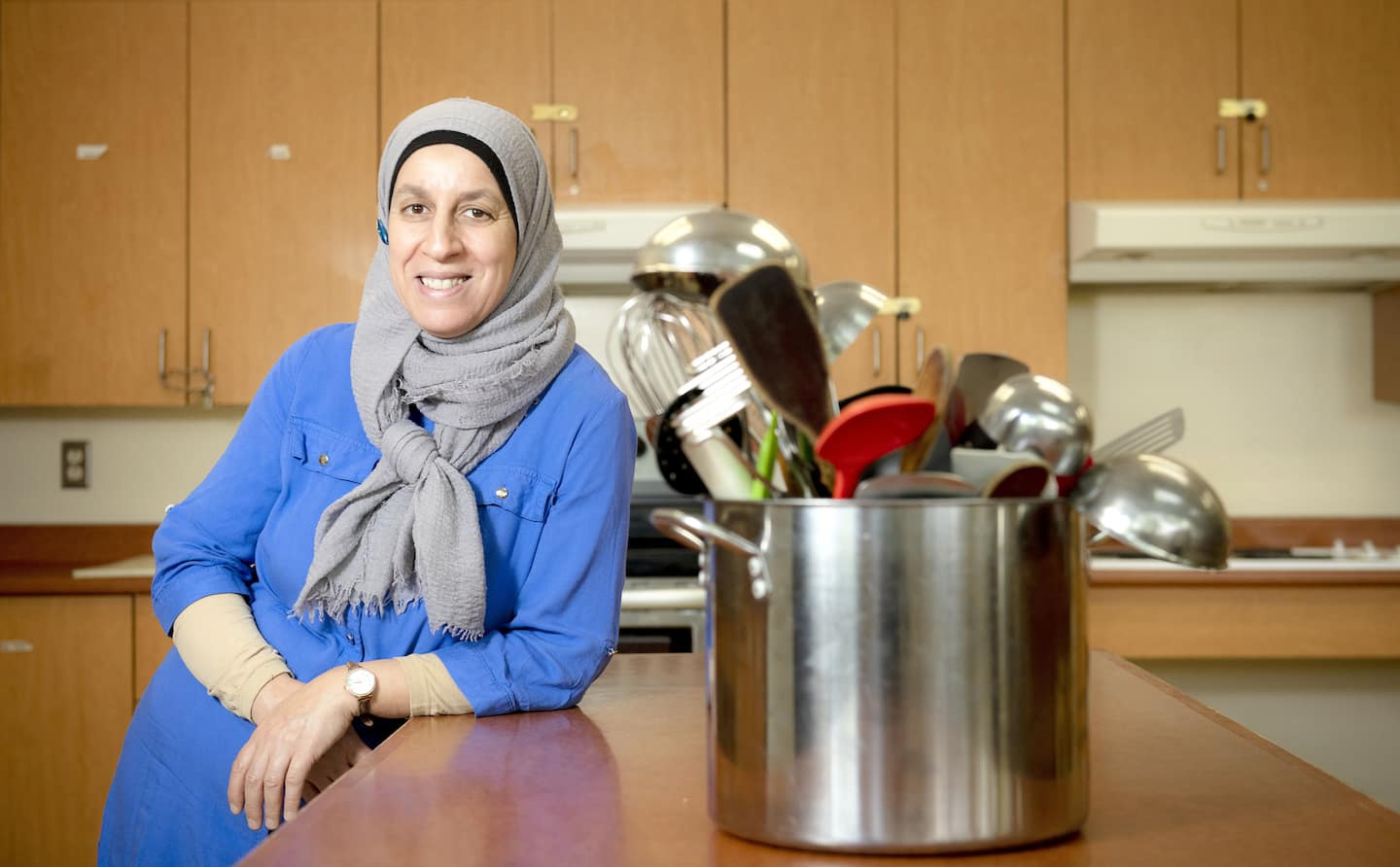The sharp rise in food prices is creating a new social class of vulnerable people in Quebec: employees who simply can no longer afford basic products.
• To read also: A short tour of the world of measures to counter the soaring prices
• Read also: Quebec must act to curb the devouring appetite of grocers
• Read also: Sacrifices for 75% of Quebecers
Djamila Graichi sees this every day in her work. “Before, we just looked after low-income people. This year, we have several participants who work and make middle-class salaries, ”observes the coordinator of Bouffe-Action de Rosemont.
For 15 years, she has helped mothers and future mothers eat well in order to have a healthy baby and avoid low birth weight.
Bouffe-Action de Rosemont offers easy, economical and nutritious recipe workshops to encourage women to cook. Baby food workshops are also offered.
“For the past two years, we have also been asked a lot for food aid. If there are more people than usual, it's because people can't make ends meet," laments the community worker.
She now sees secretaries, health workers and other such professionals arriving who need to change their priorities. Inflation has taken on proportions that no longer allow them to have access to the same way of life.
"It's a game-changer when you can't access basics," she says.
Heavy psychological effects
Economically, of course, but also mentally, because it is not easy for an employee to bring himself to ask for food aid.
“People are starting to get fragile. We even see couples breaking up because of it,” says Ms. Graichi, who worries about seeing workers feel bad about themselves due to financial worries.
The mother of three is also affected by rising food prices in her private life. "I have to reorganize, run more specials, buy more when I can find a good price and therefore cook more, too, to preserve food," she says.
She laughs a little yellow saying that she could participate in her own workshops.
The state must act
On Monday, a group of 60 organizations asked the Legault government to regulate the price of certain staple foods to reduce the scale of the current crisis.
“It would allow people to have food in quantity, quality and variety. It's also a way to encourage our own industry, ”thinks Jean-Philippe Laperrière, director at Concertation en Sécurité Alimentaire de Saint-Léonard.
If we are able to offer $500 plane tickets to Quebecers to travel in the regions, we are also able to offer them local products at a good price, thinks the one who also teaches contemporary food issues at UQAM. .
Instead, requests for food aid are allowed to skyrocket, which lowers the quality of the baskets donated, he says. And consuming food aid "feels like an under-person because you're eating the waste products of the system."
At a minimum, without distinguishing between children and adults, we must calculate $9.50 per day per person for food.
"But it's not true that with $10 a day, we manage to eat in a rewarding way, it's really the minimum of survival", nuances Jean-Philippe Laperrière, who teaches contemporary issues in food at the University of Quebec in Montreal and who runs a community food security organization.
The figure comes from the Institute for Socioeconomic Research and Information (IRIS), which based itself on 2021 prices.
On average, a family of two adults and two children must pay $13,694 per year to provide all the calories needed.
No meat for many
But that is by not buying any prepared food, cooking everything yourself and never going to a restaurant.
"It's not ideal, it takes a lot, a lot of work and you have to spend your life running the sales," summarizes the food teacher.
With his colleague at Concertation en securitité Alimentaire de Saint-Léonard, they are in the process of surveying about fifty "low middle class" people in order to take the pulse of the field.
They found that a family of four spends an average of $300 per week on food. And that she would rather spend $450 on it, or $16 a day per person.
"People don't want to put caviar on their toast in the morning, they just want to eat like the average person," he says.
60% of respondents are currently depriving themselves, especially of meat and protein. People are disappointed not to eat meat, fish, seafood, cheese.
"When you know how much food is an identity, how important it is to feel good, there is reason to worry," summarizes Mr. Laperrière.
It's a matter of dignity and self-esteem, he says. He wonders why less well-to-do people are forced to eat poorly.













